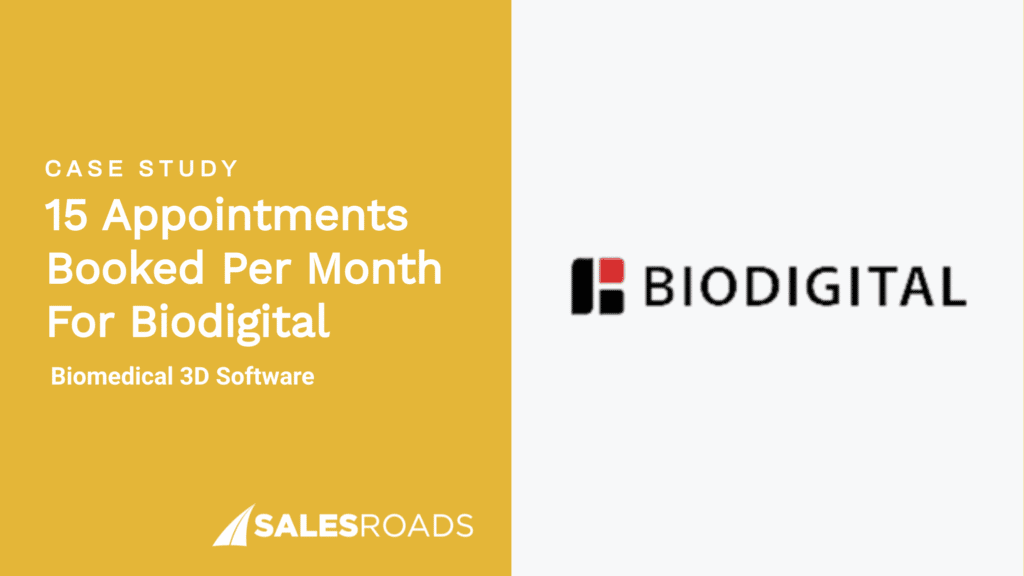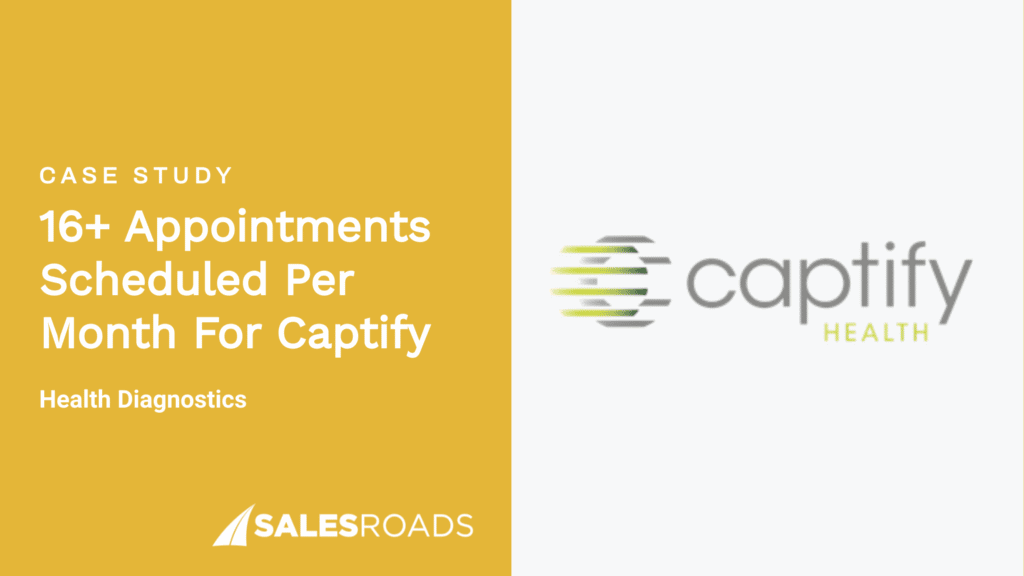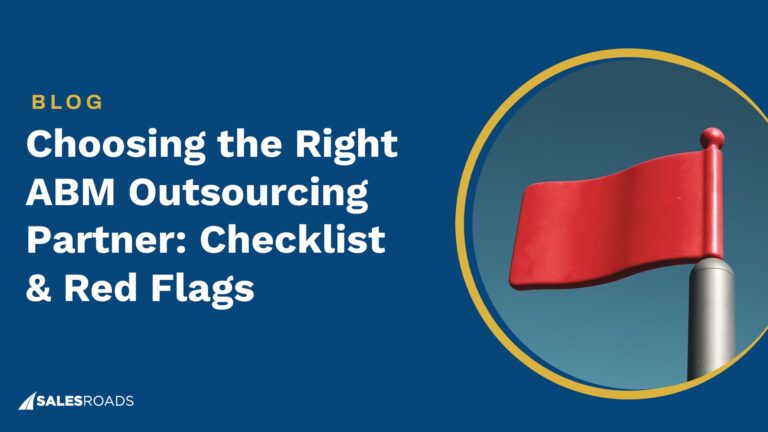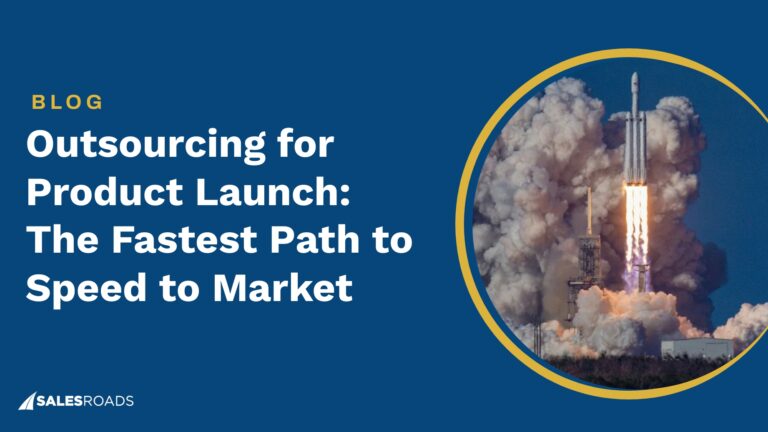With so many lead generation tools available, it can be challenging to choose the right one for your business. The best lead generation software goes beyond just collecting leads; it helps you automate processes, nurture relationships, and seamlessly integrate with your existing systems to drive meaningful growth.
Whether you’re new to lead generation or looking to optimize your current strategy, understanding the key features to look for in lead generation tools can make all the difference.
What Are B2B Lead Generation Tools?
B2B lead generation tools are platforms designed to help businesses identify, capture, and nurture leads for business-to-business sales. These tools streamline the process of finding potential clients, managing contacts, and automating marketing efforts to enhance sales strategies.
With the right lead generation tools, businesses can improve their lead quality, reduce manual work, and increase overall sales efficiency.
Whether you’re a small startup or an established enterprise, utilizing the best lead generation tools for B2B can make a significant impact on your marketing efforts, enabling you to scale faster and connect with the right audience.
Benefits of Using Lead Generation Software
Lead generation software has become an essential tool for businesses seeking to streamline their sales and marketing processes. With the right lead generation tools, companies can automate and enhance their lead generation strategies, ultimately driving more qualified leads and higher conversions.
Below are the key benefits of utilizing lead generation platforms:
Improved Efficiency
One of the most significant advantages of using B2B lead generation software is the improvement in efficiency.
Manual lead generation processes can be time-consuming and prone to human error. By using lead gen tools, businesses can automate tasks such as lead capture, follow-ups, and segmentation, enabling sales teams to focus on higher-value activities like nurturing and closing deals.
Automation reduces the workload on your team and speeds up the overall lead generation process, allowing you to scale your efforts effortlessly.
Higher Quality Leads
The best lead generation tools for B2B provide advanced targeting features that help businesses capture more qualified leads. These tools can filter leads based on various criteria, such as industry, company size, or specific behaviors, ensuring that your sales team focuses on the most promising prospects.
By nurturing leads who are already interested in your offering, businesses can increase the chances of conversion and improve overall lead quality.
Better Lead Tracking
Effective lead tracking is essential for understanding where prospects are in their journey and how to engage them effectively. Lead generation software allows businesses to track leads from the moment they first engage with your brand to the point of conversion.
By capturing every interaction, these tools provide valuable insights into lead behavior, helping your team refine its strategies and understand what’s working and what needs adjustment. This data-driven approach ensures a more targeted and efficient sales process.
Increased Conversion Rates
By automating lead nurturing, segmentation, and communication, lead generation platforms enable businesses to maintain consistent engagement with prospects.
With tailored messaging and timely follow-ups, businesses can keep leads warm and guide them through the sales funnel more effectively. This continuous engagement increases the likelihood of conversion, as prospects are more likely to make a purchasing decision when they feel their needs are being addressed promptly and effectively.
Scalability
As your business grows, your lead generation efforts need to scale accordingly. Lead gen tools are designed to accommodate growth without sacrificing quality or efficiency.
Whether you’re managing a small list of leads or hundreds of thousands, lead generation software can handle large volumes of data, automate outreach, and scale your marketing efforts to meet the needs of a growing business. This scalability ensures that your sales team can continue to generate high-quality leads as your company expands.
Types of Lead Generation Tools
There are various types of lead generation tools available to businesses, each serving a unique purpose in the overall lead generation process. Depending on your business needs, you can leverage these tools to attract, nurture, and convert prospects more effectively.
Below are some of the most commonly used types of lead generation platforms:
Email Marketing Tools
Email marketing is one of the most effective ways to nurture leads and engage with potential customers.
Email marketing tools such as Mailchimp and ActiveCampaign allow businesses to capture leads via sign-up forms, segment contacts, and automate follow-up emails. These tools help businesses stay connected with prospects, sending them personalized content and offers that encourage further engagement and conversion.
Social Media Tools
Social media platforms like LinkedIn, Facebook, and Twitter are excellent sources for lead generation.
Social media tools such as Hootsuite and LinkedIn Sales Navigator help businesses monitor social interactions, track leads, and engage with prospects. These tools allow you to schedule posts, track social media engagement, and even automate messages to connect with potential clients more effectively, making social media a powerful part of your lead generation strategy.
Content Marketing Tools
Content is king when it comes to attracting new leads. Content marketing tools like HubSpot and OptinMonster help businesses create and distribute valuable content that resonates with potential customers. Whether it’s blogs, eBooks, white papers, or webinars, these tools allow businesses to generate leads by offering high-quality content in exchange for contact information.
Content marketing tools also help you track and analyze the performance of your content, so you can optimize your strategy and attract more qualified leads.
SEO Tools
Search engine optimization (SEO) plays a vital role in attracting inbound leads. SEO tools such as SEMrush and Moz help businesses optimize their website for search engines, improving organic visibility and driving traffic. By optimizing content for keywords relevant to your industry, these tools can help you attract highly targeted leads who are actively searching for the products or services you offer.
SEO tools also provide insights into competitor performance, enabling businesses to stay ahead of the curve.
CRM Integration Tools
Customer Relationship Management (CRM) integration tools help businesses connect their lead generation software with their CRM systems. These tools, such as Zapier, streamline the process of capturing and managing leads by syncing data between various platforms.
By integrating your lead generation efforts with your CRM, you can automatically track and nurture leads, ensuring that no opportunities are missed. This seamless integration improves lead management and enhances the effectiveness of your sales team.
Key Features to Look for in Lead Generation Tools
When selecting the best lead generation software, it’s essential to focus on the features that can maximize the efficiency and effectiveness of your lead generation efforts.
The best lead generation tools for B2B should not only help you capture high-quality leads but also integrate seamlessly into your existing systems, ensuring a smooth workflow and long-term scalability.
Below are key features to look for when evaluating lead generation platforms:
Automation and Workflow Capabilities
One of the most critical features of lead generation tools is their ability to automate manual tasks, saving your team time and increasing productivity. The best lead generation tools for B2B offer workflow automation capabilities that allow you to set up triggers, follow-ups, and lead nurturing sequences.
By automating the lead capture process and follow-up emails, your sales team can focus on closing deals rather than spending time on repetitive tasks.
With automation, businesses can also personalize outreach at scale, ensuring leads receive timely, relevant messages based on their behaviors and interactions with your brand.
This creates a more efficient process that not only helps generate more leads but also nurtures those leads through the sales funnel until they’re ready to convert.
Integration with CRM and Other Platforms
For lead generation efforts to be truly effective, your lead generation platforms should integrate seamlessly with your existing CRM and other marketing and sales tools.
CRM integration allows you to automatically capture and track leads in real time, ensuring no prospect slips through the cracks. By integrating lead gen tools with your CRM, all lead data is centrally located, enabling your sales team to quickly access key information, such as contact details, interactions, and lead status.
Integration with other tools, such as email marketing software, social media platforms, and analytics tools, can also enhance your lead generation process by creating a unified system that streamlines communication and workflow. This not only saves time but also ensures consistency in your outreach efforts, driving higher engagement and better lead conversion rates.
Data Security and Compliance
As businesses collect more data from potential leads, it’s crucial to ensure that your lead generation tools are equipped with robust data security measures. With increasing regulations such as GDPR, ensuring compliance with data protection laws is essential.
The best B2B lead generation software will provide encryption, secure data storage, and clear consent management to protect sensitive information and ensure compliance with legal requirements.
In addition to protecting your company’s reputation, maintaining secure and compliant lead data prevents costly fines and ensures that leads trust your brand with their personal information.
By choosing lead generation platforms that prioritize data security, businesses can build stronger relationships with leads and demonstrate their commitment to protecting privacy.
Top 20 Lead Generation Tools
Several lead generation platforms are helping businesses build better pipelines, automate processes, and improve outreach.
Below are some of the best B2B lead generation software options available today:
LeadPages
LeadPages is a popular lead gen tool for creating landing pages that convert visitors into leads. This easy-to-use software helps you capture data, automate follow-ups, and increase lead generation efforts by optimizing landing page designs for better conversion rates.
Leadfeeder
Leadfeeder integrates with Google Analytics to help businesses track website visitors and turn them into leads. By identifying companies visiting your site, it enables you to better target potential clients and create more effective sales outreach strategies.
Mailchimp
Mailchimp is a comprehensive marketing platform that offers a suite of lead generation tools, including email campaigns and automation. With its easy-to-use features, businesses can capture, manage, and convert leads through personalized email marketing.
Hello Bar
Hello Bar is an excellent tool for website lead generation, offering simple pop-ups and banners to capture email addresses and direct visitors to key content. It’s a great option for increasing website conversions quickly.
Hootsuite
While Hootsuite is known for social media management, it also offers powerful features for lead generation. By scheduling posts and tracking social media engagement, Hootsuite helps businesses identify prospects and engage with potential leads.
HubSpot
HubSpot is an all-in-one inbound marketing platform, offering everything from lead capture forms to automated email workflows. As one of the best B2B lead generation software options, HubSpot enables businesses to nurture and convert leads with ease.
Drift
Drift offers conversational marketing features that help businesses interact with leads in real-time. By using chatbots and live chat, Drift allows companies to respond quickly and capture high-quality leads as they visit your website.
Everwebinar
Everwebinar is a powerful webinar platform that enables businesses to automate their webinars and generate leads efficiently. It integrates with other tools like Mailchimp and HubSpot, allowing for seamless lead capture and follow-up.
Zapier
Zapier is an automation tool that connects various apps and platforms to automate your lead generation workflows. By linking tools like Google Sheets, Mailchimp, and Salesforce, you can streamline your lead management process.
LinkedIn Helper
LinkedIn Helper helps you automate tasks on LinkedIn, such as connecting with prospects, sending messages, and endorsing skills. It’s a great lead generation tool for B2B businesses looking to leverage LinkedIn’s networking capabilities.
LinkedIn Sales Navigator
LinkedIn Sales Navigator is one of the most powerful tools for B2B sales professionals. It allows for advanced lead search capabilities, providing tailored lead recommendations and the ability to engage directly with decision-makers.
Qualaroo
Qualaroo is a tool designed to gather customer insights and feedback directly from your website visitors. By asking targeted questions, Qualaroo helps you qualify leads based on their responses, turning website interactions into valuable data.
OptinMonster
OptinMonster is a robust lead generation platform that helps businesses create highly engaging opt-in forms, pop-ups, and other on-site conversion strategies. It allows you to target specific visitors, ensuring that the right leads are captured at the right time.
SlideShare
SlideShare is a platform for sharing presentations and documents. It serves as a great tool for businesses to showcase their expertise, drive traffic, and generate leads through informative content.
MobileMonkey
MobileMonkey focuses on Facebook Messenger marketing, enabling businesses to automate lead generation and customer support on social media. It’s a unique lead gen tool for businesses targeting audiences via mobile.
Intercom
Intercom is a popular messaging platform that allows businesses to interact with leads and customers. It offers a suite of automation and live chat features to capture leads, answer questions, and enhance user engagement.
Quora
Quora is a question-and-answer platform where businesses can engage with potential leads by answering industry-related questions. By establishing thought leadership, you can generate leads and direct traffic to your website or landing pages.
Outreach.io
Outreach.io is a sales engagement platform that helps businesses with email outreach, tracking, and follow-ups. It provides a suite of automation and reporting tools to streamline lead generation efforts, making it one of the top lead generation platforms for B2B businesses.
ActiveCampaign
ActiveCampaign offers advanced email marketing and automation tools, enabling businesses to nurture leads and manage customer relationships efficiently. It’s ideal for generating, segmenting, and converting leads into customers through targeted campaigns.
SEMrush
SEMrush is known for its SEO and competitive research capabilities, but it also provides valuable lead generation tools. By analyzing search data, businesses can identify prospects who are actively searching for solutions like theirs, increasing their chances of successful outreach.
Bottom Line
At the end of the day, choosing the right lead generation tools is not just about finding the latest software—it’s about selecting a platform that aligns with your business goals, scales with your growth, and integrates seamlessly into your sales processes.
Make data-driven decisions, invest in tools that align with your strategy, and watch your lead generation efforts transform into measurable business success.










